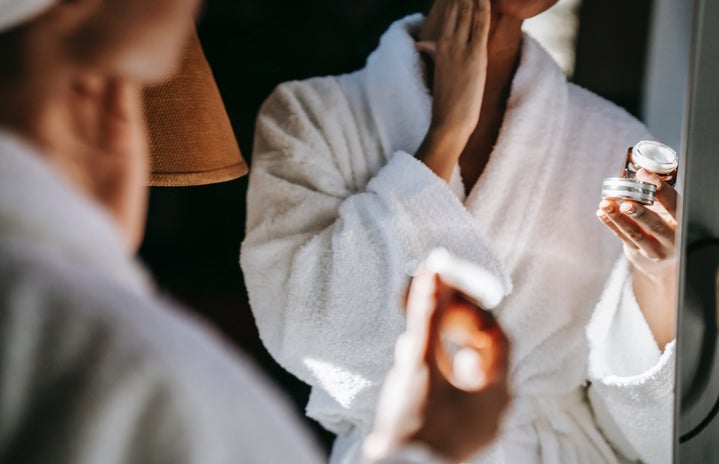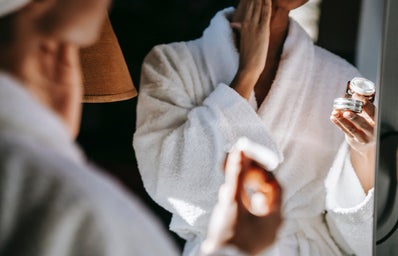As we enter the colder weather of the fall/winter season, it’s becoming more important than ever to protect your skin. Since your skin faces the harsh conditions of the outside climate everyday, it’s vital that you have a heck of a skincare routine to take care of it. Not sure where to begin to curate the perfect skincare routine? That’s what we’re here for! Read on to learn about the top three products you should be using to keep your skin healthy, smooth, and hydrated.
- vitamin c
-
Yep, Vitamin C, the stuff you find in your glass of orange juice. Vitamin C serums are a powerful antioxidant that have a load of benefits: it can help even your skin tone and texture, reduce dark spots and wrinkles, and even protect you from UV radiation from the sun. Vitamin C is an acid that works to increase new cell regeneration in the skin, and accelerates the production of collagen and elastin, keeping your skin elastic and plump. You can find lots of different Vitamin C serums, toners, and products at your local cosmetics store like Sephora or Ulta, and most likely also at drugstores for a variety of price ranges and product sizes. If you want to prevent premature aging and maintain glow-y skin, you should be using a Vitamin C serum or Vitamin C-containing product every morning (and probably also every night), along with the other products listed in this article.
- Retinol
-
Retinol is a product you may recognize from its recent traction on social media sites like Instagram and Skincare TikTok. Retinoids are a Vitamin A derivative often used as a topical cream to reduce acne, for anti-aging effects, and to promote collagen production in the skin, much like Vitamin C. Many low-strength retinoids are available over the counter for all skin types, with lots of brands at Sephora incorporating it into their skincare lines. Retinoids work to boost skin cell turnover, producing new cells quicker for reduced acne breakouts and less clogged pores. Using a retinol product nightly even if you don’t have acne can lead to clearer, elastic-feeling skin in a couple weeks. However, it is important to remember that retinoids can also be a bit harsh on the skin and should be tried out slowly before they are used daily. If you’re using other acne medications for your skin, make sure to check with your doctor before starting to use retinol-containing products! And if you’re going to be using it, also make sure you’re using a great sunscreen to keep your face protected.
- Sunscreen
-
Although you may not realize it, the sun’s dangerous rays can penetrate your skin on even the cloudiest days. While rainy and cloudy days in Seattle may make you think you don’t need sunscreen, clouds actually filter less than 25% of UV radiation from the sun. Increased exposure to UVA and UVB radiation from the sun can cause what has become the most common form of cancer in the United States: melanoma, or skin cancer, as well as skin discoloration and wrinkles. While we may have spent the last year holed up in our houses due to a pandemic, it is important to remember that the sun is always shining, especially now that we have to be on campus all day and attend classes. One key step to an effective and protective skincare routine is using a sunscreen of at least 40 SPF every single morning. Many high-quality facial sunscreens or sunscreen-moisturizer duos can be found at Sephora, Ulta, or the drug store. Do your best to not stay in the sun for extended periods of time, or, if you have to be, reapply your sunscreen often.
If you don’t have an adequate skincare routine yet, now is the time to curate your own! Find products that work for you, even if they’re just simple things you can find at the drug store. The best way to have healthy, youthful skin for a long time is to start taking care of it early, especially in a cold and drying climate like ours. As always, if you have sensitive skin or are taking other prescription facial products, always check with a physician before using new products. Good luck and wishing you only great skin days ahead!
Sources:
https://www.healthline.com/health/beauty-skin-care/is-retinol-safe
https://www.yalemedicine.org/news/sunscreen
https://www.huffpost.com/entry/what-does-vitamin-c-serum-do-for-the-skin_n_5c47279ae4b0bfa693c73ec6


